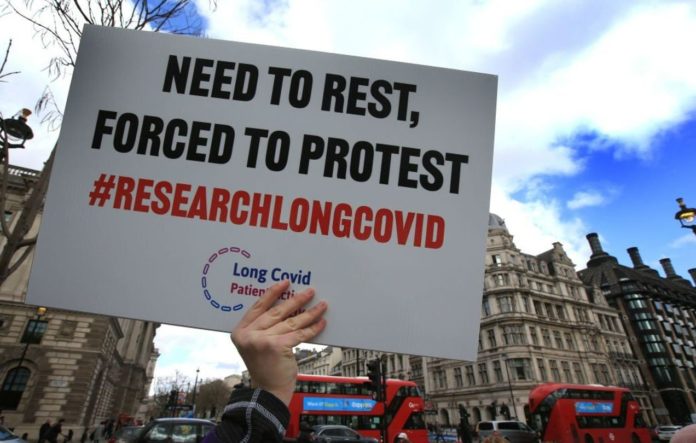Long-term effects: A study from Wuhan shows that about half of the Covid 19 patients are still struggling with long-term effects two years later. There, 55% of those infected at the start of 2020 are still experiencing fatigue, muscle weakness, pain, and psychological issues. Overall, the quality of life and health status of the participants are still inferior to those of the controls. As a result, Long Covid may last longer than anticipated.
The SARS-CoV-2 coronavirus doesn’t just hurt our bodies when we first get sick. Covid-19 also has long-term effects on many people who get it. Long Covid Syndrome is characterized by chronic fatigue, neurological impairments, and a lack of concentration, as well as organ damage, muscle pain, and breathing difficulties. It’s unclear how many Covid=19 people are affected and how long their symptoms will remain.
How long does Long Covid last?
Now, data from Wuhan, the pandemic’s epicenter, is revealing further information. Beijing Medical University’s Lixue Huang and colleagues conducted the longest-ever study of its kind, following 1,192 first-hour Covid-19 patients for a period of two years. Between January 7 and May 29, 2020, those who were infected with SARS-CoV-2 were investigated and treated at Wuhan’s Jin Yin-tan Hospital.
The doctors gave these women and men another full medical examination after six, twelve, and 24 months to determine the frequency and duration of late effects. They also took blood samples, inquired about the test subjects’ subjective well-being, and assessed their walking endurance. Standardized questionnaires were used to assess mental wellness.
Late consequences after two years
The results showed that two years after the acute infection, 55% of the test subjects still had at least one long-Covid symptom. Even when the symptoms faded with time, Huang and her colleagues found that the health and well-being of those impacted were still worse than that of the general population of the same age and income.
Fatigue and muscle weakness were the most common long-term symptoms, with around a third of the patients still experiencing them two years later. But there were also sleep disturbances, joint pain, tachycardia, disorientation, and headaches. When it came to long-term psychological impacts, anxiety was the most common, accounting for 13% of those afflicted, while depression affected 11%.
Long Covid persists
“Regardless of the original severity of the course, the Covid-19 patients experienced improvements in their physical and mental health – but the burden of late effects remained relatively high,” the researchers write. “Our results suggest that it takes more than two years for at least some of those affected to fully recover from Covid-19.”
This, according to the researchers, emphasizes the necessity for more research on the course and causes of Long Covid. The role of immunizations, treatments, and virus variations in the development of late effects has to be looked into more. At the same time, the findings show that a considerable number of Covid-19 patients require medical attention and therapy months, if not years, after their initial infection.
Source: 10.1016/S2213-2600(22)00126-6
Image Credit: Getty
You were reading: Long Covid: Two years later, half of the Covid 19 patients still have symptoms
